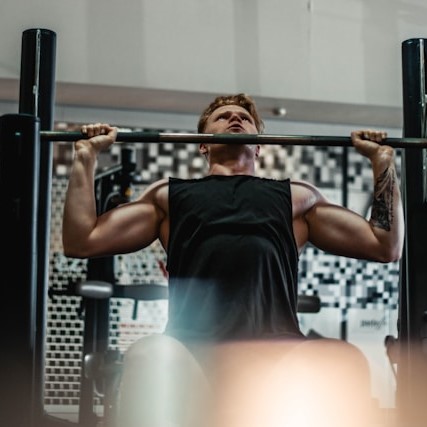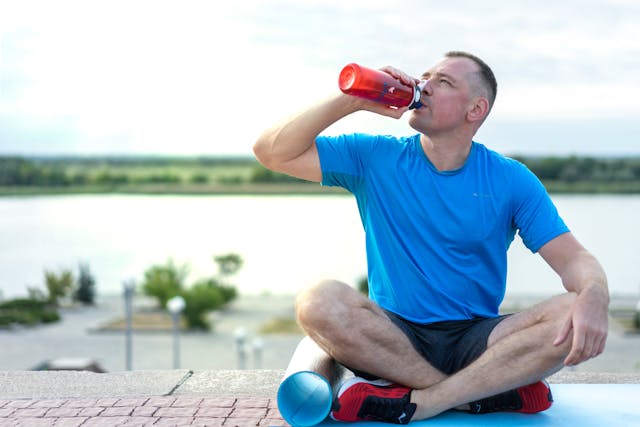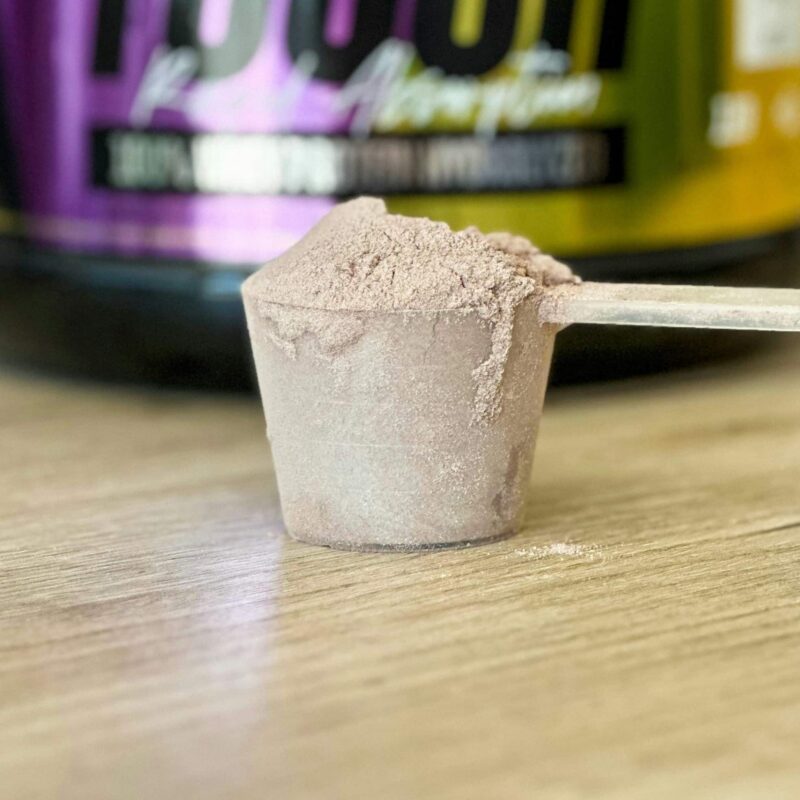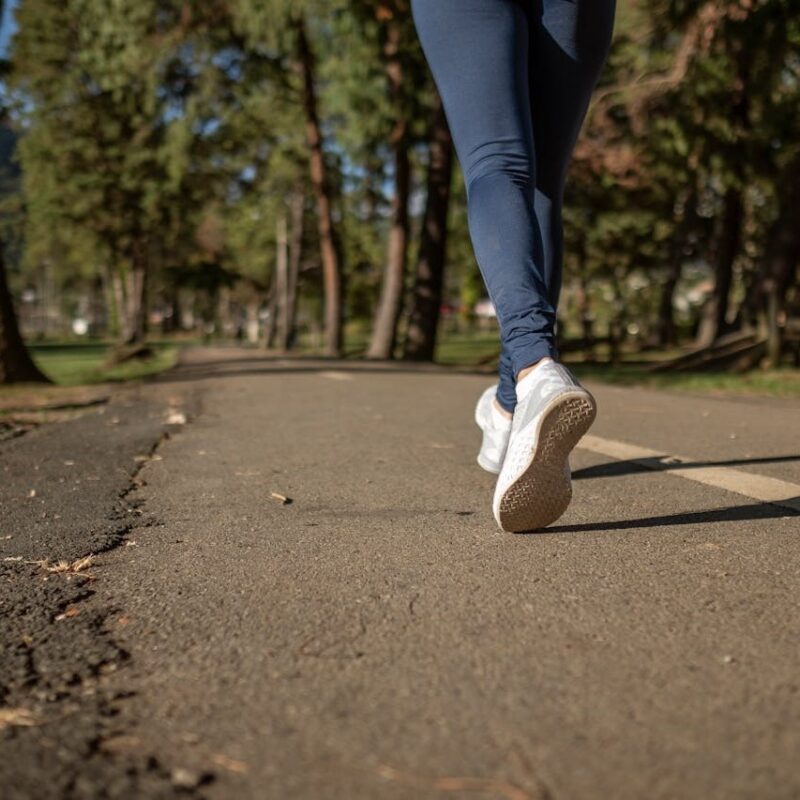
Blog
Will Protein Powder Give You Energy?

Every gym-goer can feel tired, and every office worker can face difficulty tackling those last few hours at work.
In such a case, a little boost of energy is all you need.
But where does this energy come from? Well, a protein shake can be good to go!
However, people often think, will protein powder give you energy? Protein powder does give energy, but protein is the last option for the body. However, it can serve several other functions, which makes it perfect for fitness enthusiasts and people who perform intense workouts.
Let’s understand the chemistry behind protein powders and how much our body needs them to generate energy.
Understanding the way our body uses protein

Before finding out whether protein powder will provide energy or not, we need to understand the way our body utilizes it.
We can take the discussion to the point that our body needs three macronutrients to function properly. These macronutrients should be in large quantities in the body.
These are:
- Carbohydrates
- Fats
- Proteins
While all of these macronutrients are highly essential for energy, the order of converting them to energy in the body is a bit different.
Carbohydrates are the easiest to convert into glucose. Thus, when producing energy, the body targets carbohydrates first and converts them into energy.
Next, it goes to fats and performs the same function.
Then, at the end, there comes the turn for proteins. This is because protein molecules are complex and require more time to break down and convert into energy in the body. Although they are the last option, protein still provides many benefits that make it crucial for intake.
So, does the body rely on protein?
The thing is, our body doesn’t rely on protein alone to generate energy. In fact, protein is the last resource our body would run to in order to get energy. Usually, a small amount of protein is converted into energy. This is because it isn’t stored in the body.
As carbohydrates are the easiest to break down, they will be the first option for our body. Then comes the turn of fats and then proteins. However, we need to keep in mind that our body primarily stores protein in the muscles. Thus, the body has to break down these muscles in order to utilize the protein and make it available for consumption.
How is protein involved in giving energy?

As mentioned before, protein is the last option for getting energy. But that doesn’t mean it’s useless. The wonders of protein powder go beyond providing energy, as it is in several other processes. Some functions like building muscle mass and building tissues are the primary function of protein. On the other hand, it also regulates other processes.
So, coming to the main question, how does protein give you energy?
Here’s how:
- According to research, iron deficiency is linked with less protein in the body. Thus, older people should consume protein shakes to keep iron levels in control. The recommended dosage for people with iron deficiency is 1.7 grams of protein per kilogram of body weight.
- Consuming protein shakes means that you are gaining muscle tissues. This is the primary role of a protein powder. Thus, your metabolism increases through protein powders, and you get enough energy for workouts. Also, a fast metabolism means that your body can convert food into energy more quickly.
- Having a protein shake before a workout is one of the best ways to avoid a blood sugar drip. If your body experiences a decrease in blood sugar levels, the consumption of protein shakes before the workout will help you save the day. It means that the body will be able to reach the proteins (considered as the last option) in case of deficiency and get enough energy to prevent an energy crash.
- Protein powder also helps us build muscles. With increased muscle mass, we get more energy for intense workouts.
- Protein has the ability to make you feel full for a long time. With this ability, protein powder tends to keep the food in the stomach, thus delaying the process by which food is converted into energy. In this way, your body can have surplus protein to use when required.
After reading these points, you must rest assured that protein is essential in providing energy to the body. While it isn’t directly involved in each process, it is highly essential in regulating several processes and acting as a mediator to provide energy.
Thus, we cannot deny the fact that protein powder does give us energy, both directly and indirectly.
Protein powders for getting energy
By now, we know that protein isn’t the first preferred source of energy.
However, protein powders are suitable if you want an energy boost post-workout. The primary purpose of protein powders is to help build muscles and support muscle mass.
For gym-goers and fitness enthusiasts, protein powder is effective. This is because the body may run out of sources to generate energy while working out. In this case, drinking protein shakes before workouts can help sustain energy in the body in case you might need it later.
Drinking these shakes after the workout will help in muscle recovery. The ability of protein shakes to suppress hunger also prevents you from rushing to the nearest restaurant just after the workout.
But, why do I feel energized after a protein shake?

We said that protein isn’t the most preferred source of energy. But, you might have felt a major difference in energy levels post-workout since you started using protein shakes. Did you?
The thing is, our body is deprived of protein around 1 hour after an intense workout. In this case, it needs protein to recover muscles. If you consume a protein shake at this time, it will quickly get absorbed and used by the body, making you feel energized.
Also, protein powder contains calories. When burned, these calories provide energy. Depending on the type of protein powder and its ingredients, you can get enough energy for workouts. If you skip meals and drink protein shakes as a replacement, you will definitely notice a difference in your energy levels.
Combining healthy fruits with protein shake intake is the best way to get energy for workouts. For excessive energy from intense gym sessions, you should also incorporate carbs into your diet.
Take-away message
Protein powders provide energy both directly and indirectly. However, our body uses protein as the last option to get energy.
Still, protein powders can be effective sources of energy for gym-goers and fitness enthusiasts.
Incorporating protein shakes into your routine can be effective in getting an instant energy boost after workouts and preventing muscle breakdown. Even if protein isn’t the best for getting energy, it still regulates other processes that primarily provide energy to the body.












